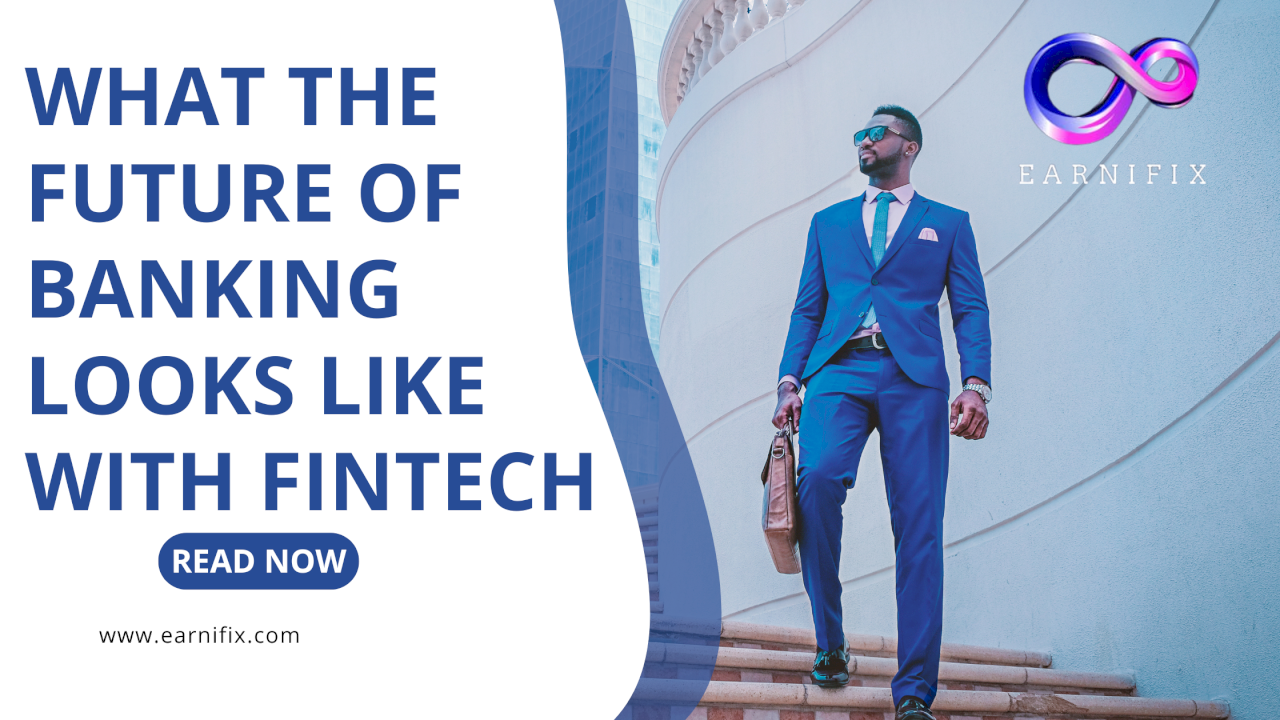
Banking is changing faster than ever before. Not long ago, visiting a branch, waiting in long queues, and signing piles of paperwork was the norm. But today, thanks to fintech (financial technology), banking is becoming smarter, faster, and more digital first.
Fintech is transforming how people save, invest, borrow, and transfer money. It’s bringing innovation to traditional banks, empowering startups, and giving consumers more control over their finances.
So, what does the future of banking with fintech look like? In this guide, we’ll explore the key trends, technologies, and challenges that will shape financial services in 2025 and beyond.
What is Fintech?
Fintech refers to the use of technology to improve financial services. It covers everything from mobile banking apps and digital wallets to cryptocurrency exchanges and AI-powered investment platforms.
Some examples of fintech we already use daily:
- Mobile payments like Apple Pay or Google Pay
- Peer to peer transfers via Venmo, PayPal, or Cash App
- Online investing apps like Robinhood or eToro
- AI driven personal finance tools like Mint or YNAB
Blockchain powered solutions for secure transactions
The beauty of fintech is that it makes banking more accessible, affordable, and personalized.
Key Trends Shaping the Future of Banking with Fintech
1. Digital-Only Banks (Neobanks)
Neobanks are financial institutions that operate entirely online with no physical branches. They appeal to younger, tech savvy customers who prefer banking from their smartphones.
📌 Example: Chime, Monzo, and Revolut.
Future impact: Expect more people to shift to neobanks for low fees, instant payments, and user-friendly interfaces.
2. Artificial Intelligence & Machine Learning
AI is at the core of fintech innovation. Banks use AI for:
- Fraud detection in real time.
- Chatbots for 24/7 customer service.
- Personalized product recommendations.
📌 Example: Many banks now deploy AI assistants that help customers track spending, save money, and even suggest investments.
Future impact: AI powered finance advisors will become the norm, helping people make smarter financial decisions.
3. Blockchain & Cryptocurrencies
Blockchain offers transparency, speed, and security. Cryptocurrencies like Bitcoin and Ethereum are already disrupting global payments and investment.
Future impact:
- Cross-border transactions will become instant and cheap.
- Central banks may launch CBDCs (Central Bank Digital Currencies).
- More decentralized finance (DeFi) applications will reduce reliance on traditional intermediaries.
4. Open Banking
Open banking allows third party apps to connect with traditional banks via secure APIs. This means consumers can manage all their finances from one platform.
📌 Example: Budgeting apps that link multiple bank accounts and credit cards.
Future impact: Open banking will lead to smarter financial ecosystems, where apps provide better insights into saving, investing, and spending.
5. Biometric Security
Passwords are becoming outdated. In the future, banks will rely on biometrics such as fingerprints, facial recognition, and voice ID.
Future impact: Fewer fraud cases and smoother logins for customers.
6. Embedded Finance
Imagine ordering groceries online and instantly getting the option to finance or insure them without going to a separate app. That’s embedded finance.
Future impact: Financial services will blend seamlessly into everyday platforms like e-commerce sites and social media apps.
7. Sustainable & Ethical Banking
Consumers care about the planet more than ever. Future banks will prioritize green investments, ethical lending, and carbon neutral operations.
📌 Example: Neobanks that promise not to fund fossil fuel projects.
Future impact: Banking will align with sustainability goals and ethical consumer demands.
Benefits of Fintech in Banking
Convenience: Access banking 24/7 through smartphones.
Speed: Faster transactions, instant transfers, and approvals.
Cost Savings: Lower fees compared to traditional banks.
Financial Inclusion: Access to credit and banking for underserved populations.
Personalization: AI creates tailored financial advice.
Transparency: Blockchain ensures secure, tamper-proof transactions.
Challenges Fintech Faces
Of course, the future isn’t without hurdles.
Cybersecurity threats – Hackers target digital platforms.
Regulation – Striking a balance between innovation and compliance.
Digital literacy gaps – Not everyone is tech-savvy.
Trust issues – Some consumers still prefer traditional banking.
Market competition – Fintech startups vs. established banks.
The Future of Banking in 2030 and Beyond
Looking further ahead, the future of banking will likely include:
1. Banking in the Metaverse – Virtual financial branches inside digital worlds.
2. Voice Banking – AI assistants handling transfers, bill payments, and investments by voice commands.
3. Predictive Banking – Banks anticipating customer needs before they ask.
4. Universal Digital Identity – Secure biometric systems for global banking access.
5. Hybrid Ecosystems – Traditional banks and fintech startups working together instead of competing.
In essence, the banks of tomorrow won’t just hold your money—they’ll be smart financial partners guiding every decision.
How Consumers Can Prepare
As fintech continues to reshape banking, here’s how you can stay ahead:
- Embrace digital tools like mobile wallets and budgeting apps.
- Keep security in mind, use biometric logins and strong passwords.
- Stay informed about regulations around cryptocurrencies and digital banking.
- Explore new fintech platforms, but stick with trusted providers.
Adopt a mindset of continuous learning banking in 2030 will look very different from today.
Conclusion
The future of banking with fintech is fast, personalized, and digital first. With AI, blockchain, open banking, and digital only banks, the financial industry is moving towards a world where banking is more efficient, accessible, and consumer driven.
While challenges remain, the benefits far outweigh the risks. The winners in this fintech revolution will be those who adapt quickly whether that’s a startup offering new solutions or a consumer embracing modern financial tools.
One thing is certain: banking will never be the same again.
anniedynamite
Thank you so much for this
beauty
Thanks for this information
goddesszinny
Very insightful
ruth
So insightful
temitope
Thank you for the update
mandy
Thank you
leesha
It's a good thing thank you